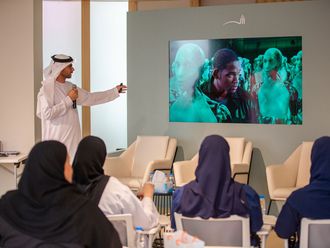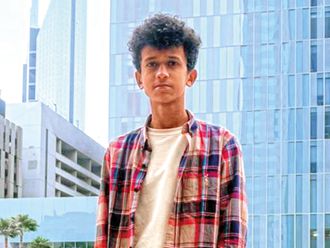
Dubai: Schools can’t shy away from their responsibility in catering for special educational needs students, irrespective of the fees they charge, a senior Knowledge and Human Development Authority (KHDA) official has said.
Contrary to the general impression, the official said special education needs care isn’t always expensive and should be provided by all schools.
“All schools have a responsibility to meet the needs of the students in their care. They are required to make sure that all students achieve their potential.
“It is not the case that only high fee schools can meet the needs of such students. Inspection evidence in Dubai has provided numerous examples of schools where the quality of teaching is good or better and, although the fees may be low, they can still offer quality education for all,” said Jameela Al Muhairi, Chief of Dubai Schools Inspection Bureau, which is part of KHDA.
KHDA on Sunday issued new guidelines for schools along with a new inspection handbook giving greater importance for schools’ ability to provide quality education for children with special needs.
“It is important that our schools provide the very best education for all of our students, including those with special educational needs.
“The DSIB handbook defines special educational needs as ‘needs that are different from the majority of students’. It is not always necessary for such children to require significant additional resources because good teachers can adapt their lessons well to meet their specific needs” she added, describing what it takes to provide special needs education.
The move closely links the provision of special needs education to the rankings of schools, making it one of the key factors to feature in any school’s standings.
“Inspection has always focused on how learning caters for the needs of different students. There is a further focus on special needs provision in schools and what needs exist.
“Inspectors place significant attention upon the success of each school in meeting the needs of all students, including those with special needs,” stated Al Muhairi, shedding a light on what the new guidelines mean for the schools.
Focusing on the overall changes made to the inspection handbook, which serves as a tool for schools to base their performance on, Al Muhairi said: “There have been a number of developments relating to students’ social and personal development. The handbook sets high quality standards and provides a guide for schools.
“It builds on the findings from the last year of inspections and details the requirements needed to improve the educational experience of our students in Dubai. “
Asked if the additional scrutiny won’t mean greater pressure on students she said: “Inspections enhance the learning experience of students and enables schools to place appropriate focus on the educational outcomes of their students.”
Echoing the opinion of Al Muhairi, a Dubai-based behavioural psychologist said that though the special needs training might incur a bit of extra cost, what it requires primarily is the willingness on the part of the schools to go that extra mile to accommodate and look after the children with learning difficulties.
“What it requires is a lot of patience on the part of teachers and modification of courses according to the potential of the students, you don’t always need to have a specially qualified teachers for this, any good teacher can do it if he/she is willing,” said Yaqoob Kazia, who is a special needs trainer at Child Early Intervention Medical Centre in Dubai Health care City.












